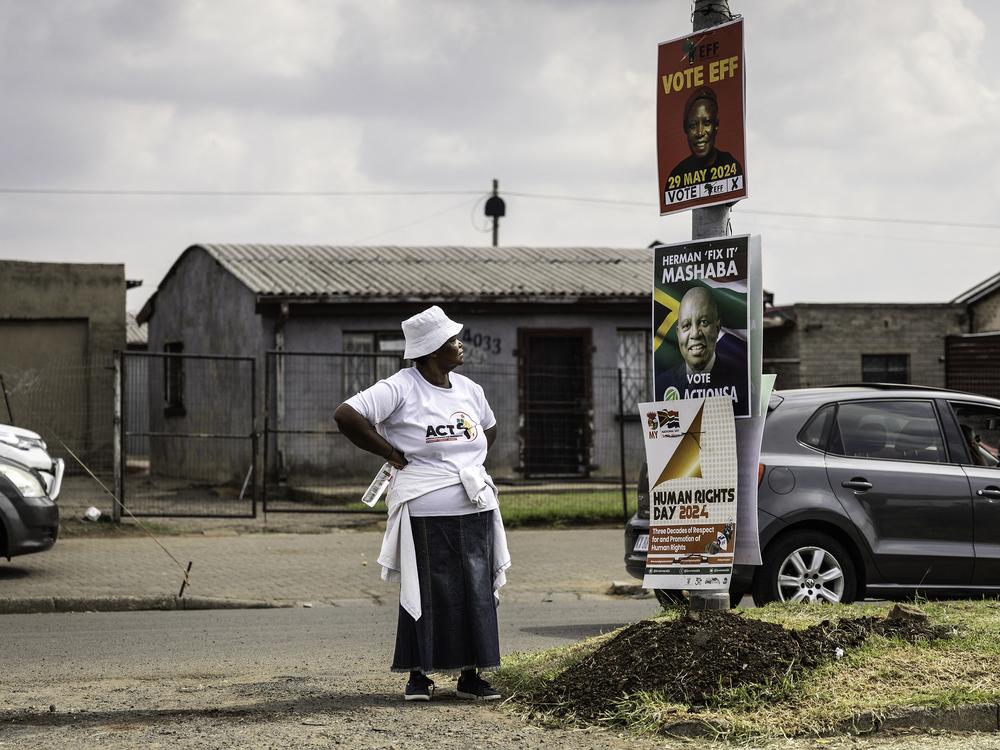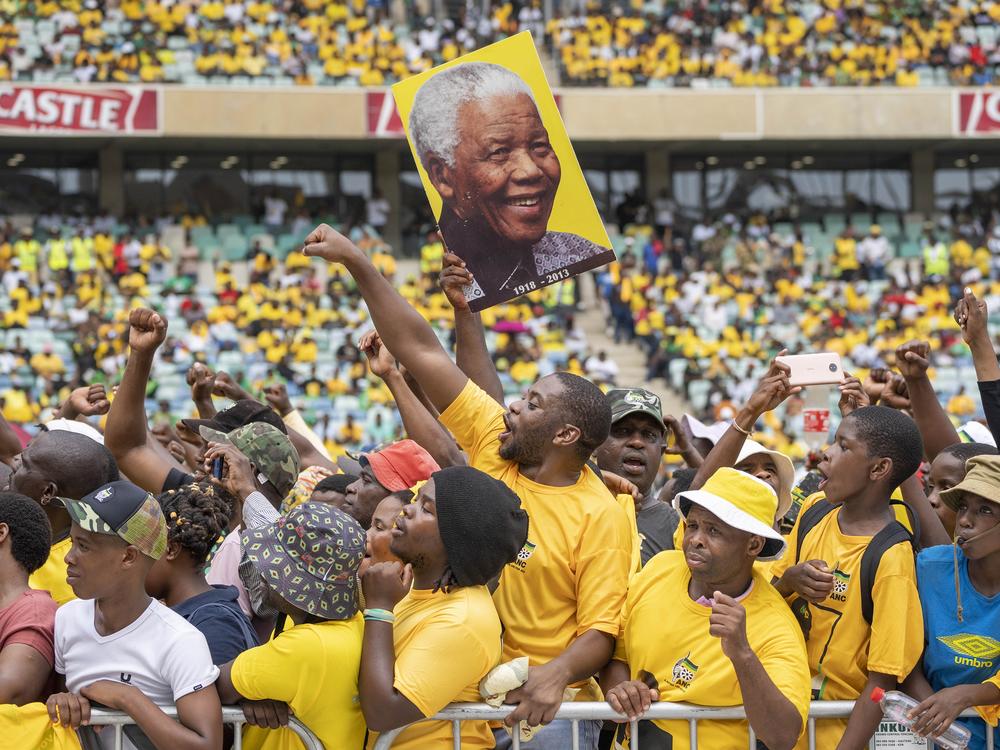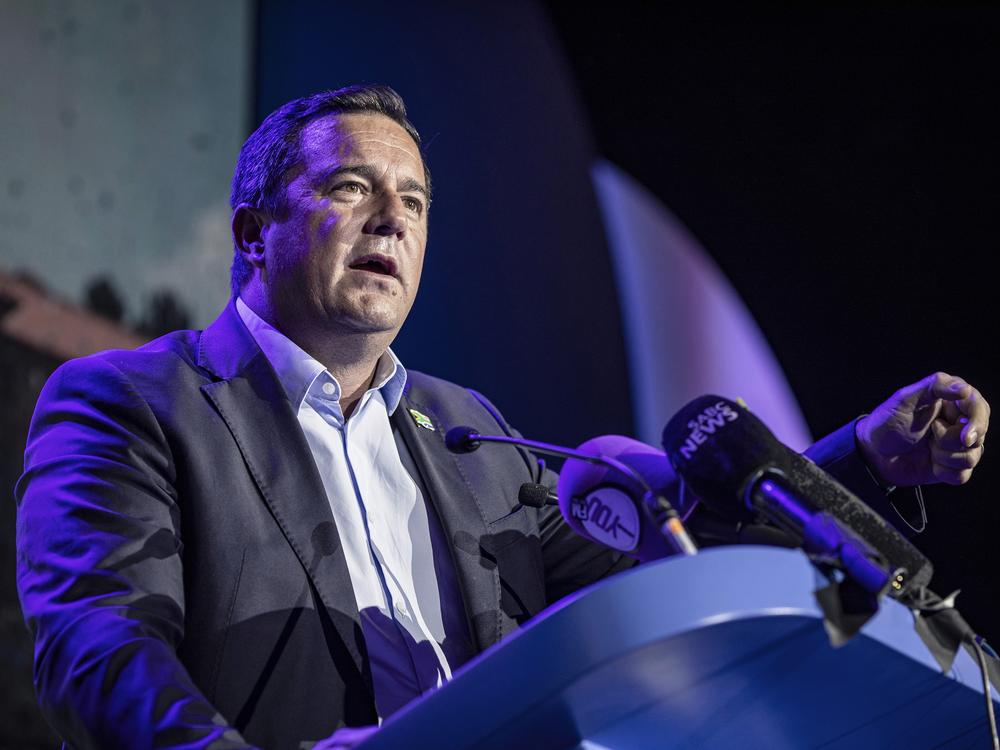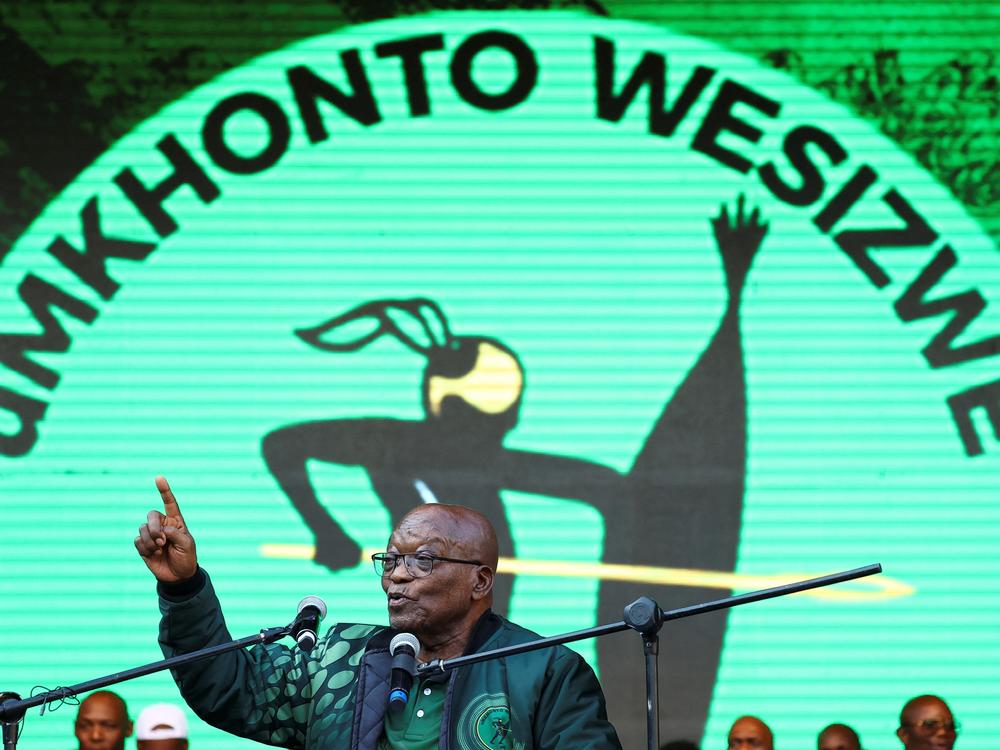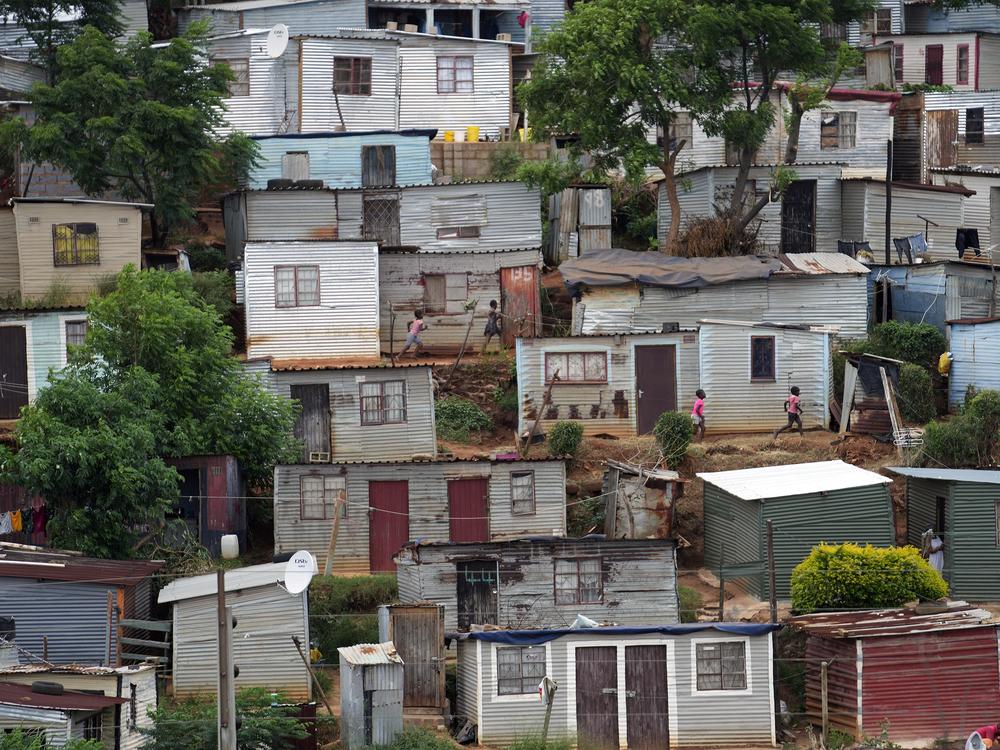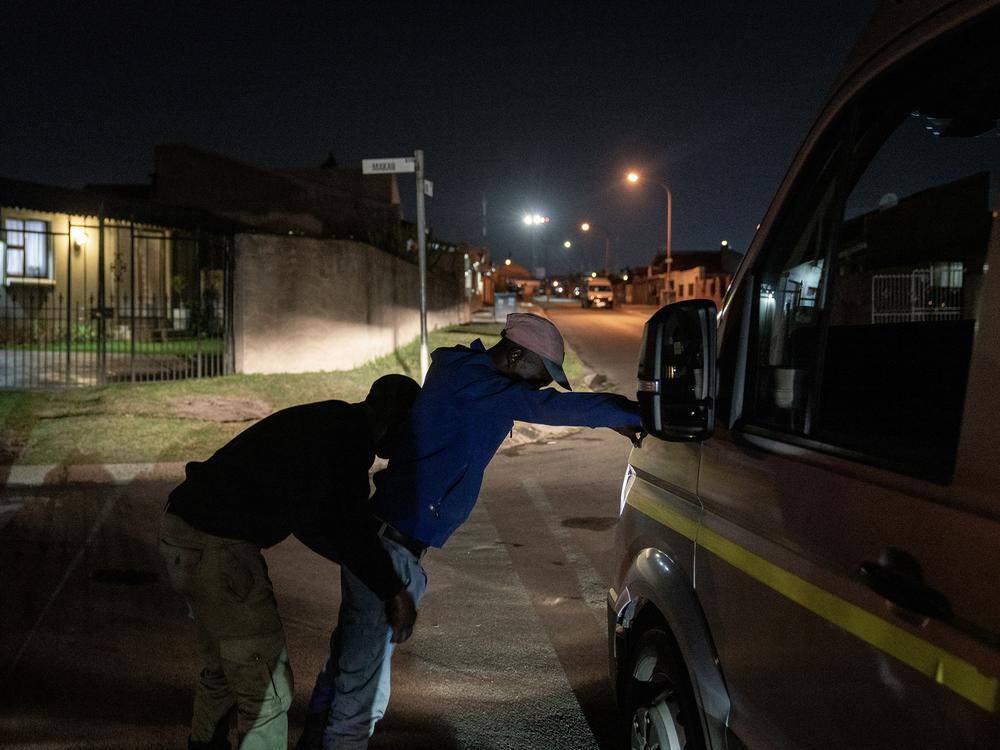Section Branding
Header Content
What to know about South Africa's May 29 elections
Primary Content
JOHANNESBURG, South Africa — It’s autumn in South Africa, where election season is in full swing and the streets are plastered with campaign posters of smiling politicians promising “A Job In Every Home” or to “Rescue South Africa”.
It is 30 years since the country’s first democratic elections, in which the Black majority were able to vote for the first time, ushering in anti-apartheid hero and global icon Nelson Mandela as president. It was a heady time then, at the advent of the “Rainbow Nation,” and full of optimism
Three decades later, in many ways things have improved. South Africa is a vibrant democracy with a free and fearless press and an independent judiciary. Human rights, including LGBTQ rights, are – unlike in many countries on the continent – enshrined in the constitution.
However, there's also widespread malaise and a palpable sense of disappointment. South Africa is still one of the most unequal countries on earth. Millions live in grinding poverty, and Mandela's old party, the African National Congress (ANC), is widely seen as corrupt and inept.
But a change of political season may be in view. Some pollsters and analysts say these could be the most pivotal elections since those fabled ones in 1994 – with the ANC tipped to get under 50% of the vote for the first time.
Here’s what you need to know about general elections on May 29.
Who are the main players?
- The ANC and President Cyril Ramaphosa
Despite the governing party's poor recent record, it's guaranteed to get the lion's share of the vote. Many South Africans have a loyalty to the party that's hard to break, given the ANC's storied history as the Struggle movement that brought them freedom.
Older voters and those in rural areas often continue to support the ANC with a resigned "better the devil you know..." attitude to politics. The urban, educated middle class and youth are less inclined to share this attitude.
In the last elections in 2019, the ANC got just under 58% of the vote, down from the 70% it garnered in 2004. This year various polls have showed the ANC getting below 50% for the first time, with some even putting their share of the vote at around just 40%.
That would see them have to enter a coalition with smaller parties, which many political analysts think would help the country's democracy mature. But the latest poll indicates that is not a given, showing that support for the party has grown in recent weeks.
Under the South African system, people vote for members of parliament rather than directly electing a president. Whichever party wins a majority then puts its leader forward as president.
In the ANC's case, current President Cyril Ramaphosa will likely get a second term. Many South Africans were happy when the 71-year-old former trade unionist replaced Jacob Zuma as president in 2018, after Zuma was forced to resign in disgrace amid myriad corruption allegations.
Ramaphosa, whom South Africans simply refer to as "Cyril," is generally regarded as honest. He was a favorite of Nelson Mandela's, helped write the country's progressive constitution, and promised to clean up the rot in the ANC on assuming the presidency.
However, critics say he has been too worried about party unity to take any real action, and has failed to turn the country around.
- The Democratic Alliance and John Steenhuisen
This is South Africa's main opposition party. The DA, as it is known, won 21% of the vote in the last elections. They have been running Cape Town, the country's second biggest city, for years with a respectable track record. The Western Cape tends to function better than ANC-governed provinces in terms of service delivery.
But the DA has one big problem: race. Its leader, John Steenhuisen, is a white man — and given the country's history, many South Africans say they can't bring themselves to vote for what they see as "a white party."
- The Economic Freedom Fighters and Julius Malema
South Africa's third largest opposition party is a radical, left-wing party led by 43-year-old political firebrand Julius Malema. It garnered 11% of the vote in 2019, with populist policies including plans to nationalize all land, banks and mines.
Malema has been in court several times on charges of hate speech, including his penchant for singing a song titled "Kill the Boer (Afrikaner)." The EFF regularly disrupts proceedings in parliament, and has been a thorn in the side of Malema's previous political home, the ANC. The party claims to represent poor Blacks, but its leaders have been known to pair their trademark red berets with Gucci shoes.
- uMkhonto we Sizwe and Jacob Zuma
Known as MK, this party was started just six months ago, but has already been making headlines — mainly because of the person leading it.
Disgraced former President Zuma, a lifelong ANC member bitter at his ousting, shocked his comrades by throwing his support behind this new opposition party in December. To add insult to injury, uMkhonto we Sizwe, which means "Spear of the Nation," was the name of the ANC's armed wing, established by Mandela in the fight against apartheid but since disbanded.
The ANC went to court this year in a failed attempt to stop the new party from copying the name, which it argued is part of its legacy and brand. Also in court was the issue of whether Zuma could run with the party. The Constitutional Court declared the week before the vote that he could not, given a previous prison sentence. Under South African law, anyone sentenced to prison cannot run for parliament within five years of that sentence.
Zuma was given 15 months for contempt of court in 2021, but released on medical parole after serving two months. MK has brushed aside the fact Zuma is barred from running, saying he's still the brains behind the party — and its face. Despite the raft of allegations against him, Zuma remains hugely popular in his home state of Kwa-Zulu Natal, which is poised to be a key battlefield in this election.
South Africa's nearly 28 million eligible voters also have myriad other small parties — around 70 — to choose from as well. About 10 opposition parties have formed "a Multi-Party Charter," agreeing to stick together in an attempt to undercut the ANC.
What are the main issues at stake?
- The economy and unemployment
South Africa has seen sluggish growth for a decade, and was hit badly by the COVID-19 pandemic and the recent spike in global prices. The country also has one of the highest rates of unemployment in the world, just under 33%, with youth unemployment at around 44%.
- The energy crisis and infrastructure
Another factor hurting South Africa's economy is a long-running energy crisis. Until a few weeks ago, the country was experiencing almost daily scheduled blackouts known as "loadshedding" — the government's attempt to ease pressure on the overstretched grid. State-owned power company Eskom has been accused of mismanagement, corruption and failure to maintain aging infrastructure.
Water shortages have also hit parts of the country, with taps sometimes running dry for days.
- Crime and corruption
South Africa has long had notoriously high crime rates, which have been described as being close to war-zone levels. At an emergency sitting of parliament on violent crime and gender-based violence in 2019 President Ramaphosa talked of a "dark and heavy shadow across our land. Women and children are under siege."
More than 7,000 people were murdered in the country in the third quarter of 2023, according to police statistics, and some 12,000 rapes were reported in the same period.
Corruption is also a major concern of many voters. Zuma is accused of what's known as "state capture" during his almost two terms in office — allowing powerful businessmen friends to exploit state resources and influence policy.
- Immigration
This month, Human Rights Watch warned many South African politicians were using dangerous, xenophobic rhetoric in their campaigning in the run-up to the polls. As the most developed economy on the continent, South Africa is a popular destination for economic migrants from other African countries. Many South Africans blame migrants for everything from taking their jobs to bringing drugs into their communities. There have been periodic violent attacks on foreign African nationals.
- The Youth Vote
South Africa has a young population and a lot of first-time voters. Members of Gen Z never knew the horrors of apartheid and so don’t have an ingrained loyalty to the ANC. In 2019, however, there was apathy among young voters, who failed to turn out. But if youthcome out in their numbers this year, analysts and political commentators say it could be a game-changer.
